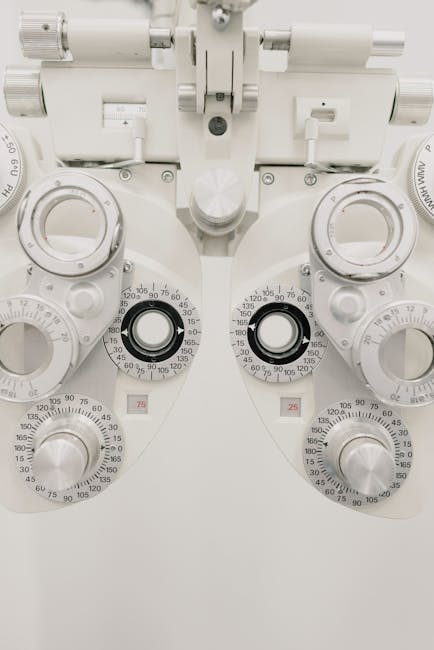
Polygraph Examinations: A Tool for Truth or Deception?
Polygraph examinations, commonly known as lie detector tests, have long been a subject of intrigue and controversy. While some view them as an essential tool in law enforcement and private investigations, others question their reliability and ethical implications. This post delves into the complexities of polygraph examinations, exploring their history, how they work, their applications, and the ongoing debate surrounding their accuracy and ethical considerations.
The History of Polygraph Examinations
The roots of the polygraph examination can be traced back to the early 20th century. Dr. John A. Larson, a medical student at the University of California, Berkeley, developed the first modern polygraph in 1921. Larson’s device measured physiological responses such as blood pressure, pulse rate, and respiration, which were believed to change under stress or deception.
Since then, the polygraph has evolved, incorporating more sophisticated technology and methodologies. Despite these advancements, the fundamental principle remains the same: measuring physiological responses to determine whether someone is being truthful or deceptive.
How Polygraph Examinations Work
Polygraph examinations rely on the premise that deceptive answers will produce physiological responses different from those associated with truthful answers. The typical polygraph test measures several bodily functions:
- Heart Rate: A person’s heart rate may increase when they are lying due to anxiety or stress.
- Blood Pressure: Blood pressure may also rise in response to the stress of lying.
- Respiration Rate: Changes in breathing patterns can indicate stress or deception.
- Galvanic Skin Response (GSR): This measures the electrical conductance of the skin, which can change with sweating due to stress.
During the examination, the polygraph examiner will ask a series of questions, some of which are irrelevant (control questions) and others that are relevant to the issue under investigation. The examiner then analyzes the physiological responses to these questions to determine if there are significant changes when relevant questions are asked.
Applications of Polygraph Examinations
Law Enforcement
Polygraph examinations are widely used in law enforcement to assist in criminal investigations. For example, police may use polygraph tests to verify the statements of suspects, witnesses, or victims. In some cases, polygraph results can help narrow down suspects or corroborate evidence.
Pre-Employment Screening
In certain industries, especially those involving high-security or sensitive information, polygraph tests are used for pre-employment screening. Government agencies such as the CIA, FBI, and NSA often require polygraph testing for potential employees to ensure they can be trusted with classified information.
Private Investigations
Private investigators may use polygraph examinations in cases involving infidelity, theft, or other personal matters. The polygraph can provide additional information that helps investigators draw conclusions or advise their clients.
Post-Conviction Testing
Some jurisdictions use polygraph examinations for post-conviction testing of sex offenders. These tests can monitor compliance with probation or parole conditions, providing an additional layer of supervision.
The Debate: Accuracy and Ethical Considerations
The accuracy and ethical implications of polygraph examinations are hotly debated topics. Critics argue that polygraphs are not reliable enough to be used as definitive evidence, while proponents believe they are valuable tools when used correctly.
Accuracy of Polygraph Examinations
Studies on the accuracy of polygraph tests have produced mixed results. According to the American Polygraph Association, polygraph tests have an accuracy rate of 87% to 95% when conducted by qualified examiners. However, other studies suggest lower accuracy rates, ranging from 60% to 80%.
Several factors can affect the accuracy of polygraph examinations, including:
- Examiner’s Skill: The experience and training of the polygraph examiner can significantly impact the accuracy of the test.
- Examinee’s Condition: Physical or psychological conditions, such as anxiety disorders or certain medications, can affect physiological responses and skew results.
- Test Environment: The conditions under which the test is administered, including the setting and the presence of distractions, can influence outcomes.
Ethical Considerations
Beyond questions of accuracy, polygraph examinations raise several ethical concerns:
- Invasion of Privacy: Critics argue that polygraph tests can be intrusive, violating an individual’s right to privacy.
- False Positives/Negatives: The possibility of false positives (innocent individuals being deemed deceptive) and false negatives (deceptive individuals being deemed truthful) raises ethical questions about the consequences of relying on polygraph results.
- Coercion: In some cases, individuals may feel pressured to take a polygraph test, raising concerns about coercion and consent.
Actionable Tips for Undergoing a Polygraph Examination
If you find yourself in a situation where you need to take a polygraph examination, consider the following tips to help you prepare:
Understand the Process
Before the examination, familiarize yourself with the polygraph process. Knowing what to expect can help reduce anxiety and ensure you are mentally prepared.
Be Honest
The most important tip is to be honest throughout the examination. Attempting to deceive the polygraph is likely to produce physiological responses that indicate stress or anxiety.
Stay Calm
Try to remain as calm and relaxed as possible. Deep breathing exercises and mindfulness techniques can help manage anxiety and keep your physiological responses stable.
Communicate with the Examiner
If you have any concerns or questions about the examination, communicate them with the polygraph examiner. They can provide clarification and help address any issues that may affect the test results.
Conclusion
Polygraph examinations are a complex and controversial tool used in various fields, from law enforcement to private investigations. While they can provide valuable information, their accuracy and ethical implications are subjects of ongoing debate. By understanding the process and considering both the benefits and limitations of polygraph tests, individuals and organizations can make informed decisions about their use.
Whether you view polygraph examinations as a tool for truth or deception, it is essential to approach them with a critical and informed perspective. As technology and methodologies continue to evolve, the future of polygraph testing will likely bring new developments and insights into this fascinating field.
